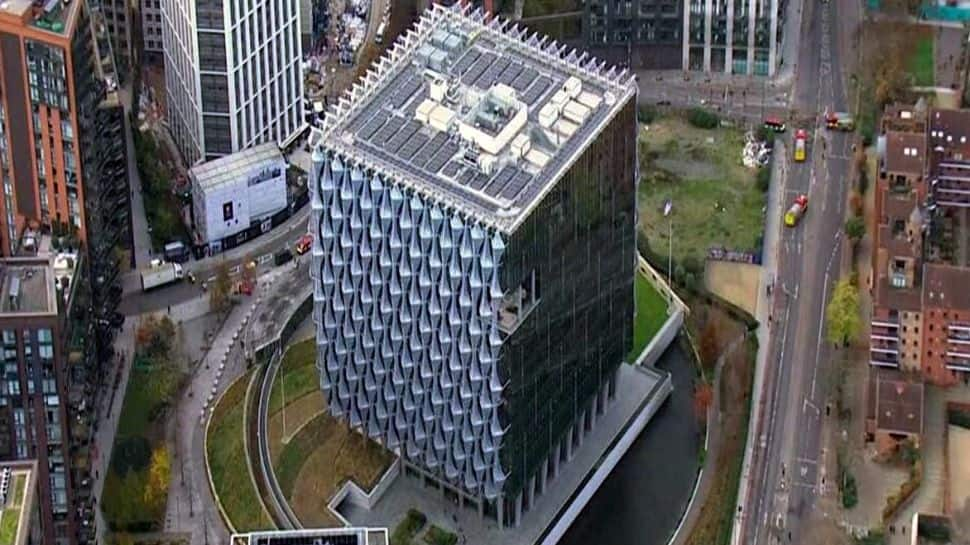Jobs
Homelessness in London at highest level on record

This spending on temporary accommodation by London boroughs represented a jump of 68% in one year.
The report explained that there is a shortage of “suitable” accommodation, which means London boroughs are increasingly reliant on placing homeless families in B&Bs, which can come at high costs for local authorities. The study found that over the past two years, there has been a 622% increase in families placed in B&Bs by London boroughs.
London Councils have warned that these costs could push boroughs in the capital towards “effective bankruptcy”, with London boroughs reportedly forecast to overspend on their original homelessness budget plans by £250m this year.
London grappling with ‘most severe homelessness’ levels in the country
“The homelessness situation in the capital is nothing less than an emergency,” said councillor Grace Williams, London Councils’ executive member for housing and regeneration. “London is the epicentre of a national crisis – we are grappling with the most severe housing and homelessness pressures in the country.”
She added that as well as homelessness being an “injustice” to Londoners, and “undermining [their] health, wellbeing and opportunities”, the levels of homelessness also “brings utterly unsustainable costs to councils”.
“Without urgent action, homelessness pressures will break London boroughs’ budgets,” she added.
“We welcome the government’s commitment to tackling homelessness and to building the affordable housing our communities need. Boroughs are relying on the upcoming budget to bring renewed support for local homelessness services and policies to reduce homelessness as quickly as possible.”
London Councils made several recommendations for national policy action within its report, including making the increase in Local Housing Allowance rates a permanent measure. It also suggested that the Homelessness Prevention Grant funding should be doubled due to the “current level of overspend”.
“Local authorities play a vital role in supporting struggling households to avoid homelessness,” the report suggested. “Councils require an emergency funding increase to ensure local services have the resources needed in the face of rising levels of demand for support.”
Homelessness charity St Mungo’s explained that reliance on temporary accommodation is a “sticking plaster”, and more needs to be done in order to increase the amount of social housing in the UK.
“Temporary accommodation can never be a long-term solution to the UK’s homelessness crisis – it is a sticking plaster at a time of scant and unaffordable housing as well as rising rents and bills,” Ayesha Camp, regional head for City of London, Tower Hamlets and Hackney, told the Big Issue.
“St Mungo’s outreach teams are seeing increased numbers of people on the streets as there just isn’t enough room in temporary accommodation. For people who are already in temporary accommodation, not having somewhere stable to live can take its toll mentally, physically, and financially.”
Camp added: “In order to end homelessness for good, we need to see more rent controls and investment in building social housing as well as homelessness intervention services – like we run at St Mungo’s.”
Polly Neate, chief executive of Shelter, added that it is “beyond belief that councils are shelling out millions on grotty, insecure accommodation, rather than investing in the solutions we know will give families safe, secure, and affordable homes.”
Neate added: “A dire lack of social housing, sky-high private rents and runaway levels of no-fault evictions have caused homelessness to spiral, with over 151,000 children in England growing up in temporary accommodation, often forced to share beds and with no room to play or do homework.
“The only way that we will end homelessness is if the government invests in a new generation of genuinely affordable social rent homes – we need at least 90,000 each year for ten years. Not only would families get the security of a home, but this would relieve pressure on private renting and pay for themselves through generating new jobs and creating savings for the NHS and benefits bill.”
Do you have a story to tell or opinions to share about this? Get in touch and tell us more. Big Issue exists to give homeless and marginalised people the opportunity to earn an income. To support our work buy a copy of the magazine or get the app from the App Store or Google Play.
Big Issue is demanding an end to extreme poverty. Will you ask your MP to join us?










